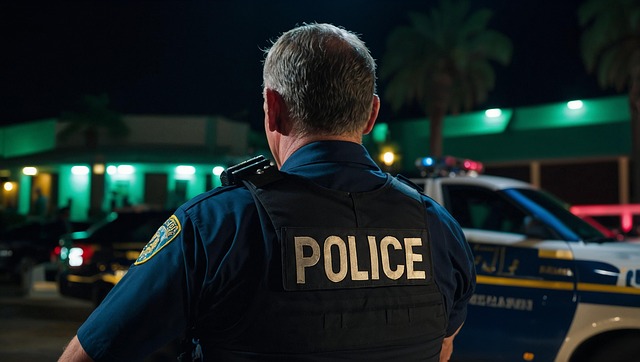Navigating RF Regulatory Agency felony investigations requires understanding plea bargains as a strategic defense. Skilled attorneys leverage knowledge of the legal system, meticulously evaluating evidence and negotiating outcomes like reduced sentences or charge dismissals to avoid lengthy trials with unpredictable results. Learning from past cases and understanding plea bargain nuances is vital for stakeholders to protect against severe penalties, ensuring fair treatment during complex legal proceedings.
“RF Regulatory Agency investigations are a critical aspect of ensuring compliance with wireless communication standards. This article delves into the intricacies of these inquiries, offering a comprehensive guide for understanding the process and its legal implications. We explore key strategies, particularly focusing on navigating plea bargains in felony cases, which can significantly impact outcomes.
Additionally, we present case studies highlighting lessons learned from past investigations, providing valuable insights for those facing such regulatory challenges. By understanding these dynamics, businesses and individuals can better prepare and navigate the complex landscape of RF Regulatory Agency proceedings.”
- Understanding RF Regulatory Agency Investigations
- The Role of Plea Bargains in Felony Cases
- Navigating the Legal Process: Strategies for Defense
- Case Studies and Lessons Learned from Past Investigations
Understanding RF Regulatory Agency Investigations

Navigating RF Regulatory Agency investigations can be a complex and intimidating process, especially for those involved in high-stakes cases. These inquiries often stem from allegations of non-compliance with radio frequency (RF) standards, which can have significant implications for businesses and individuals alike. Understanding the scope and potential outcomes is crucial when preparing for such legal proceedings.
In many instances, RF Regulatory Agency investigations lead to negotiations, including the possibility of plea bargains in felony cases. This strategy allows parties to avoid the extensive and unpredictable nature of jury trials. By reaching a mutually agreeable solution, defendants can often mitigate charges and penalties, providing an alternative to facing a potentially detrimental indictment. This approach is particularly relevant in navigating the intricate legal landscape surrounding RF regulations, where compliance errors can have far-reaching consequences.
The Role of Plea Bargains in Felony Cases

Navigating Plea Bargains in Felony Cases involves a delicate balance between ensuring justice and achieving a favorable outcome for all parties involved. In many jurisdictions, plea bargains are a common tool to manage the vast caseload of felony charges, allowing for more efficient court proceedings. This strategy offers defendants an opportunity to negotiate a reduced sentence or charges in exchange for pleading guilty.
While general criminal defense attorneys may advise against such agreements due to potential drawbacks, experienced professionals understand that well-crafted plea bargains can yield unprecedented track records. By carefully evaluating the evidence and considering the client’s best interests, lawyers can achieve extraordinary results, often securing lighter sentences or even dismissal of some charges. This approach requires a deep understanding of the legal system and the ability to navigate complex negotiations, ensuring a just resolution for their clients.
Navigating the Legal Process: Strategies for Defense

Navigating the legal process during RF Regulatory Agency investigations can be complex and daunting. One crucial strategy for defense is understanding the potential outcomes, including navigating plea bargains in felony cases. These negotiations play a significant role in determining whether an individual faces indictment and subsequent harsh penalties or achieves a more favorable resolution.
A skilled attorney’s expertise becomes invaluable here. They guide their clients through options, ensuring they make informed decisions. By strategically positioning their arguments and presenting compelling defenses, legal representatives can help individuals avoid indictment and achieve extraordinary results for themselves. This proactive approach not only mitigates potential legal consequences but also showcases a commitment to providing the best possible representation for his clients.
Case Studies and Lessons Learned from Past Investigations

Navigating plea bargains in felony cases is a critical aspect of RF Regulatory Agency investigations, offering both challenges and opportunities. Past investigations have provided invaluable case studies, revealing strategies for effective resolution while highlighting the importance of robust legal defense mechanisms. These real-world scenarios offer valuable insights into how businesses and individuals can protect themselves from severe penalties, including navigating complex legal proceedings and negotiating favorable outcomes.
Through these case studies, a clear picture emerges of successful white collar defense tactics, demonstrating an unprecedented track record in achieving positive results for those facing regulatory charges. Understanding the nuances of plea bargains is essential in avoiding indictment and ensuring fair treatment during investigations. By learning from historical cases, stakeholders can better prepare themselves, fostering a culture of compliance and minimizing potential legal pitfalls.
RF Regulatory Agency investigations can significantly impact individuals and businesses, especially when facing felony charges. Understanding the process, including the role of plea bargains, is crucial for effective navigation. By employing strategic defenses and learning from past case studies, those involved can better manage these complex situations. Navigating plea bargains in felony cases is a key aspect that requires careful consideration to ensure the best possible outcome, balancing legal rights with the potential benefits of cooperation.






